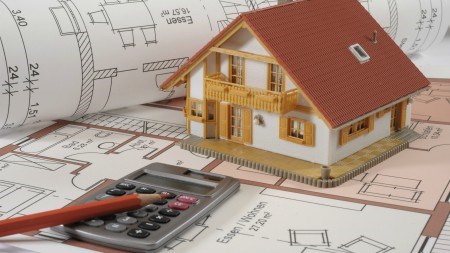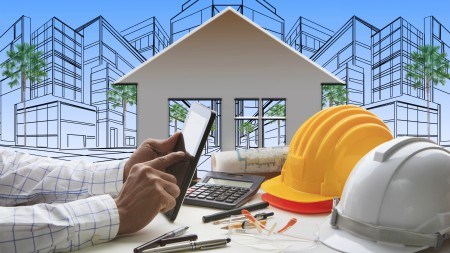Your building project can turn into a nightmare if you don’t choose your contractor carefully. Learn what to look for and what to avoid.
After looking at countless properties in person and online you finally come to the conclusion that the only way you will ever have the home you really want is to build it from scratch - with the help of a builder of course.
The pro's and con's of designing your own home
Designing and building your own home can be exciting and fulfilling. However, it can also be fraught with pitfalls and isn’t for everyone as it typically entails patience and fairly deep pockets. We’ve all heard of nightmarish scenarios where builders produced sub-standard work, didn’t deliver at all or ran way over budget and time. As such, it is imperative to do your homework and understand fully what you are getting yourself into. Making sure you can actually afford such a project is also crucial from the outset.
Recommendations for building your own home
Although going with someone who is recommended by friends or family or who is a personal friend is usually a good way to go about things, this course of action doesn’t always work out, especially if you’re only contracting that person as a favour or to help them out. If things go wrong, not only could you end up with shoddy workmanship but you could also end up losing a friend or spoiling a close relationship.
Use an architect
It’s also a good idea to use a professional architect who has a good reputation and who will assist you throughout the building process. The South African Institute of Architects (SAIA) is a good place to start. Try to be objective and shop around. Get plenty of quotes. Just keep in mind that the cheapest isn’t necessarily the way to go. It could be that corners are being cut which means you’ll end up with a badly built house.
Make sure they're registered
It’s also wise to contract builders who are registered with professional, reputable organisations. In South Africa, there are two primary building bodies, the Master Builders Association South Africa (MBSA) and National Home Builders Registration Council (NHBRC).
The MBSA functions as a federation on behalf of regional and provincial Master Builders Associations who in turn represent contractors and employers who operate within South Africa’s building industry. The primary role of the MBSA is to promote the interests of the building industry in South Africa, to promote best practices and ensure sustainability.
If you feel a builder has not delivered a satisfactory service, you can approach the MBSA for advice, inspections and mediation. The MBSA also offers standardised building contracts which can be used by members as well as the general public.
The NHBRC was created to protect new home buyers. By law, all home builders have to be registered with the NHBRC and have to comply with the council’s building quality standards.
To establish whether or not a contractor is affiliated to the council or has been suspended or deregistered, simply contact the body or check their website. There is also a warranty scheme in place which covers major structural defects caused by poor workmanship. Non-compliance and deviation from plans and specifications also falls under the NHBRC’s ambit.
Other regional bodies exist which can assist with region specific builds and issues. Other related bodies include the Electrical Contractors Association of SA, the Institute for Timber Construction and the South African Bureau of Standards.
Get it in writing
Of course, when entering into an arrangement with a builder, a contract should be drawn up and checked by both parties’ attorneys. As mentioned, the MBSA offers standardised contracts. Altering these contracts is discouraged but if necessary, any changes made should be reduced to writing.
Lastly, when contracting builders, use your common sense. Be sure to obtain references, try and view some of the projects the builder has worked on and don’t be afraid to ask questions. It will quickly become apparent whether or not your house is really going to be the home of your dreams or the stuff of nightmares.



